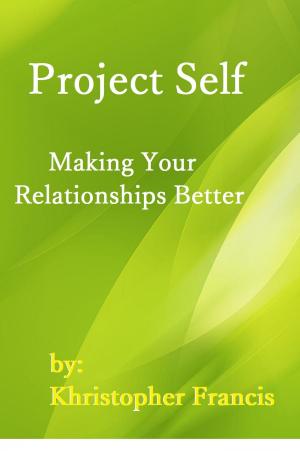Rearrangements
The Venus Project’s Resource-Based Economy
Nonfiction, Art & Architecture, General Art, Reference, Business & Finance, Finance & Investing, Banks & Banking, Science & Nature, Technology, Engineering| Author: | Bob Schilling | ISBN: | 9782897281472 |
| Publisher: | Osmora Inc. | Publication: | September 2, 2013 |
| Imprint: | Osmora Inc. | Language: | English |
| Author: | Bob Schilling |
| ISBN: | 9782897281472 |
| Publisher: | Osmora Inc. |
| Publication: | September 2, 2013 |
| Imprint: | Osmora Inc. |
| Language: | English |
On a daily basis, we make plans as if we were very much in charge of the future—as if we can affect it for better or worse by the plans we make. Sometimes the plans of others affect us even when we know nothing about them, as in the 9-11 disaster. Plans can have unintended consequences, and not having a plan can have consequences too.
Most people seem to accept the idea that the future can be planned for, or else they wouldn’t plan for it. But can the future be planned for on a larger scale than just tonight’s dance, or tomorrow’s cook out? Can groups larger than one’s friends and family plan effectively for the future, and if so, how might this be done? What kinds of plans should be made if people can make plans? Who should make them? What should BIG PLANS be based on?
These are questions which are not easy, but they may be necessary. According to many polls, a majority of scientists think that the human race is on a “collision course” with nature, and that the ability of the planet to sustain life is in serious jeopardy. There is a threat of rapid global climate change which, whether planned or unplanned, will certainly have consequences. The pollution of rivers and the air we breathe threatens our health. We are using up our “capital” instead of living off the interest, which means we are wasting non-renewable resources like topsoil and the ozone layer instead of using these resources intelligently.
]]>
On a daily basis, we make plans as if we were very much in charge of the future—as if we can affect it for better or worse by the plans we make. Sometimes the plans of others affect us even when we know nothing about them, as in the 9-11 disaster. Plans can have unintended consequences, and not having a plan can have consequences too.
Most people seem to accept the idea that the future can be planned for, or else they wouldn’t plan for it. But can the future be planned for on a larger scale than just tonight’s dance, or tomorrow’s cook out? Can groups larger than one’s friends and family plan effectively for the future, and if so, how might this be done? What kinds of plans should be made if people can make plans? Who should make them? What should BIG PLANS be based on?
These are questions which are not easy, but they may be necessary. According to many polls, a majority of scientists think that the human race is on a “collision course” with nature, and that the ability of the planet to sustain life is in serious jeopardy. There is a threat of rapid global climate change which, whether planned or unplanned, will certainly have consequences. The pollution of rivers and the air we breathe threatens our health. We are using up our “capital” instead of living off the interest, which means we are wasting non-renewable resources like topsoil and the ozone layer instead of using these resources intelligently.
]]>















